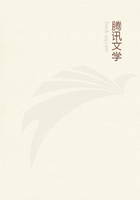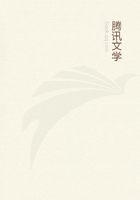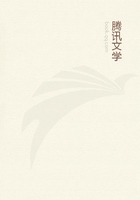They found a more convenient method of being defiant without any insight, viz., the appeal to common sense . It is indeed a great gift of God, to possess right, or (as they now call it) plain common sense. But this common sense must be shown practically, by well-considered and reasonable thoughts and words, not by appealing to it as an oracle, when no rational justification can be advanced. To appeal to common sense, when insight and science fail, and no sooner- this is one of the subtle discoveries of modern times, by means of which the most superficial ranter can safely enter the lists with the most thorough thinker, and hold his own. But as long as a particle of insight remains, no one would think of having recourse to this subterfuge. For what is it but an appeal to the opinion of the multitude, of whose applause the philosopher is ashamed, while the popular charlatan glories and confides in it? I should think that Hume might fairly have laid as much claim to common sense as Beattie, and in addition to a critical reason (such as the latter did not possess), which keeps common sense in check and prevents it from speculating, or, if speculations are under discussion restrains the desire to decide because it cannot satisfy itself concerning its own arguments. By this means alone can common sense remain sound. Chisels and hammers may suffice to work a piece of wood, but for steel-engraving we require an engraver's needle. Thus common sense and speculative understanding are each serviceable in their own way, the former in judgments which apply immediately to experience, the latter when we judge universally from mere concepts, as in metaphysics, where sound common sense, so called in spite of the inapplicability of the word, has no right to judge at all. I openly confess, the suggestion of David Hume was the very thing, which many years ago first interrupted my dogmatic slumber, and gave my investigations in the field of speculative philosophy quite a new direction. I was far from following him in the conclusions at which he arrived by regarding, not the whole of his problem, but a part, which by itself can give us no information. If we start from a well-founded, but undeveloped, thought, which another has bequeathed to us, we may well hope by continued reflection to advance farther than the acute man, to whom we owe the first spark of light. I therefore first tried whether Hume's objection could not be put into a general form, and soon found that the concept of the connection of cause and effect was by no means the only idea by which the understanding thinks the connection of things a priori, but rather that metaphysics consists altogether of such connections. I sought to ascertain their number, and when I had satisfactorily succeeded in this by starting from a single principle, I proceeded to the deduction of these concepts, which I was now certain were not deduced from experience, as Hume had apprehended, but sprang from the pure understanding. This deduction (which seemed impossible to my acute predecessor, which bad never even occurred to any one else, though no one had hesitated to use the concepts without investigating the basis of their objective validity) was the most difficult task ever undertaken in the service of metaphysics; and the worst was that metaphysics, such as it then existed, could not assist me in the least, because this deduction alone can render metaphysics possible. But as soon as I had succeeded in solving Hume's problem not merely in a particular case, but with respect to the whole faculty of pure reason, I could proceed safely, though slowly, to determine the whole sphere of pure reason completely and from general principles, in its circumference as well as in its contents. This was required for metaphysics in order to construct its system according to a reliable method. But I fear that the execution of Hume's problem in its widest extent (viz., my Critique of the Pure Reason) will fare as the problem itself fared, when first proposed. It will be misjudged because it is misunderstood, and misunderstood because men choose to skim through the book, and not to think through it-a disagreeable task, because the work is dry, obscure, opposed to all ordinary notions, and moreover long-winded. I confess, however, I did not expect, to hear from philosophers complaints of want of popularity, entertainment, and facility, when the existence of a highly prized and indispensable cognition is at stake, which cannot be established otherwise, than by the strictest rules of methodic precision. Popularity may follow, but is inadmissible at the beginning. Yet as regards a certain obscurity, arising partly from the diffuseness of the plan, owing to which. the principal points of the investigation are easily lost sight of, the complaint is just, and I intend to remove it by the present Prolegomena. The first-mentioned work, which discusses the pure faculty of reason in its whole compass and bounds, will remain the foundation, to which the Prolegomena, as a preliminary, exercise, refer; for our critique must first be established as a complete and perfected science, before we can think of letting Metaphysics appear on the scene, or even have the most distant hope of attaining it. We have been long accustomed to seeing antiquated knowledge produced as new by taking it out of its former context, and reducing it to system in a new suit of any fancy pattern under new titles. Most readers will set out by expecting nothing else from the Critique; but these Prolegomena may persuade him that it is a perfectly new science, of which no one has ever even thought, the very idea of which was unknown, and for which nothing hitherto accomplished can be of the smallest use, except it be the suggestion of Hume's doubts. Yet even he did not suspect such a formal science, but ran his ship ashore, for safety's sake, landing on skepticism, there to let it lie and rot; whereas my object is rather to give it a pilot, who, by means of safe astronomical principles drawn from a knowledge of the globe, and provided with a complete chart and compass, may steer the ship safely, whither he listeth. If in a new science, which is wholly isolated and unique in its kind, we started with the prejudice that we can judge of things by means of our previously acquired knowledge, which., is precisely what has first to be called in question, we should only fancy we saw everywhere what we had already known,. the expressions, having a similar sound, only that all would appear utterly metamorphosed, senseless and unintelligible, because we should have as a foundation out own notions, made by long habit a second nature, instead of the author's. But the longwindedness of the work, so far as it depends on the subject, and not the exposition, its consequent unavoidable dryness and its scholastic precision are qualities which can only benefit the science, though they may discredit the book. Few writers are gifted with the subtlety, and at the same time with the grace, of David Hume, or with the depth, as well as the elegance, of Moses Mendelssohn. Yet I flatter myself I might have made my own exposition popular, had my object been merely to sketch out a plan and leave its completion to others instead of having my heart in the welfare of the science, to which I had devoted myself so long; in truth, it required no little constancy, and even self-denial, to postpone the sweets of an immediate success to the prospect of a slower, but more lasting, reputation. Making plans is often the occupation of an opulent and boastful mind, which thus obtains the reputation of a creative genius, by demanding what it cannot itself supply; by censuring, what it cannot improve; and by proposing, what it knows not where to find. And yet something more should belong to a sound plan of a general critique of pure reason than mere conjectures, if this plan is to be other than the usual declamations of pious aspirations.
同类推荐
热门推荐
邪魅王妃:拐个美男当老公
她,商国实至名归的打工妹,这天在跟客人吵架后莫名其妙的昏倒在地,再次醒过来后,一切都已经物是人非了。她,尚古大陆有实无貌的第一丑女,被人算计在偌大的森林里武功尽失,甚至连命都没了。再次睁眼后,陆七柒已经不再是那个陆七柒,这尚古大陆的风云因为她发生了翻云覆雨的变化。“冒昧问一句,你有女朋友吗?”某花痴的七柒两眼放光的看着眼前帅得一沓糊涂的美男。“女,朋友为何物?”某男一脸困惑的看着某女。不可不知的N个金融投资常识
这是一本商务人士身边的经济助手,普通百姓必备的经济手册。本书让你财经常识全掌握,经济现象全能看懂,经济走势提前预判,投资理财轻松学会,是最实用的财经商务知识读本,一书在手,商场无敌,生活无忧。















